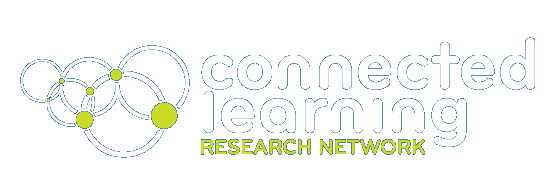Resources
Publications
Children, risk, and safety on the internet: Research and policy challenges in comparative perspective
BY: Sonia Livingstone, with Leslie Haddon and Anke Görzig
As internet use is extending to younger children, there is an increasing need for research focusing on the risks young users are experiencing, as well as the opportunities, and how they should cope. With expert contributions from diverse disciplines and a uniquely cross-national breadth, this timely book examines the prospect of enhanced opportunities for learning, creativity and communication set against the fear of cyberbullying, pornography and invaded privacy by both strangers and peers.
Risks and safety on the internet: The perspective of European children.
BY: Sonia Livingstone, Leslie Haddon, Anke Görzig, and Kjartan Ólafsson
EU Kids Online aims to enhance knowledge of the experiences and practices of European children and parents regarding risky and safer use of the internet and new online technologies, in order to inform the promotion of a safer online environment for children.
Polylingual and polycultural learning ecologies: Mediating emergent academic literacies for dual language learners
BY: Kris D. Gutiérrez, Andrea C. Bien, Makenzie K. Selland and Daisy M. Pierce
In this article, we examine the affordances of polylingual and polycultural learning ecologies in expanding the linguistic repertoires of children, particularly young Dual Language Learners. In contrast to settings that promote the development of English and academic language at the expense of maintaining and developing home language, we argue that the social organization of learning should privilege participation in dynamic, hybrid literacy practices.
Re-Mediating Current Activity for the Future
BY: Kris D. Gutiérrez
The growing poverty and inequity in America should create a sense of urgency in researchers to leverage what we know for the public good—to intervene more productively and vigorously in an ever more fragile public educational system and to address the increasing vulnerability of far too many youth in the United States.
Essentializing Racial and Ethnic Identity (in Encyclopedia of Diversity in Education)
BY: Gutiérrez, Kris D., Paguyo, C., & Mendoza, L
This entry approaches the issue of essentializing racial and ethnic identity through a discussion of diversity, which helps illustrate the ways that reductive notions of racial and ethnic communities, their practices, and peoples are indexed in the public sphere. This entry locates the notion of diversity as central to a democratic education and examines the […]
An Ecological and Activity Theoretic Approach to Understanding Diasporic and Non-Dominant Communities. ( in Research on schools, communities, and neighborhoods: Toward Civic Responsibility)
BY: Gutiérrez, Kris, D. & Arzubiaga, A
Chapter in a William F. Tate IV, ed. “Research on Schools, Neighborhoods and Communities: Toward Civic Responsibility” (March 2012, Roman & Littlefield Publishers)
Networked Publics
BY: Walter Baer, François Bar, Anne Friedberg, Shahram Ghandeharizadeh, Mizuko Ito, Mark E. Kann, Merlyna Lim, Fernando Ordonez, Todd Richmond, Adrienne Russell, Marc Tuters, Kazys Varnelis, Edited by: Kazys Varnelis
Digital media and network technologies are now part of everyday life. The Internet has become the backbone of communication, commerce, and media; the ubiquitous mobile phone connects us with others as it removes us from any stable sense of location. Networked Publics examines the ways that the social and cultural shifts created by these technologies have transformed our relationships to (and definitions of) place, culture, politics, and infrastructure.
Personal, Portable, Pedestrian: Mobile Phones in Japanese Life
BY: Edited by: Mizuko Ito, Daisuke Okabe and Misa Matsuda
The Japanese term for mobile phone, keitai (roughly translated as “something you carry with you”), evokes not technical capability or freedom of movement but intimacy and portability, defining a personal accessory that allows constant social connection. Japan’s enthusiastic engagement with mobile technology has become—along with anime, manga, and sushi—part of its trendsetting popular culture.
Engineering Play: A Cultural History of Children’s Software
BY: Mizuko Ito
Today, computers are part of kids’ everyday lives, used both for play and for learning. We envy children’s natural affinity for computers, the ease with which they click in and out of digital worlds. Thirty years ago, however, the computer belonged almost exclusively to business, the military, and academia. In Engineering Play, Mizuko Ito describes the transformation of the computer from a tool associated with adults and work to one linked to children, learning, and play.
Transformational Transactions: Time Banking and Community Engagement (in Practicing Plentitude)
BY: Emilie Dubois with Luka Carfagna and Juliet Schor
Book is Forthcoming










